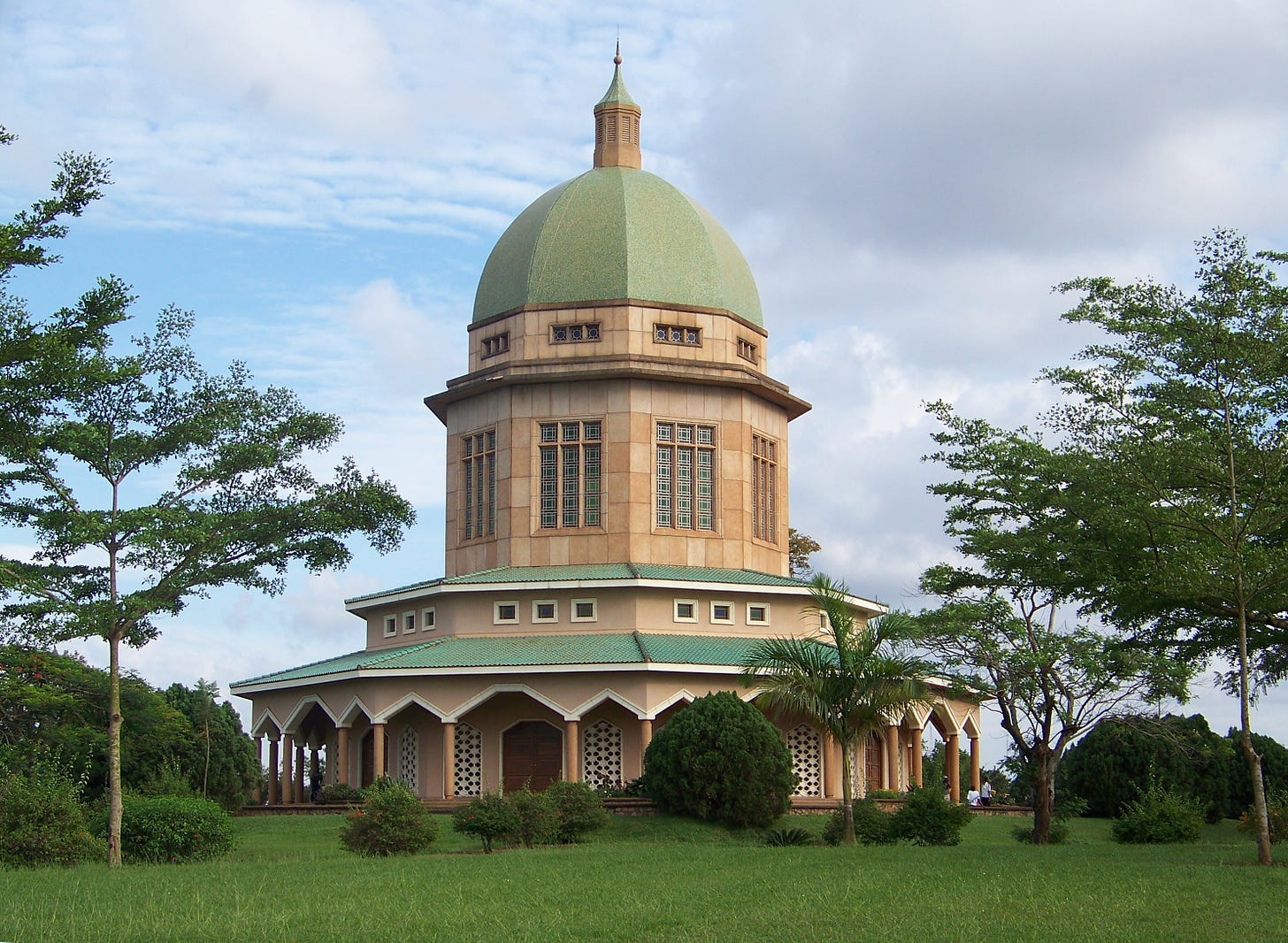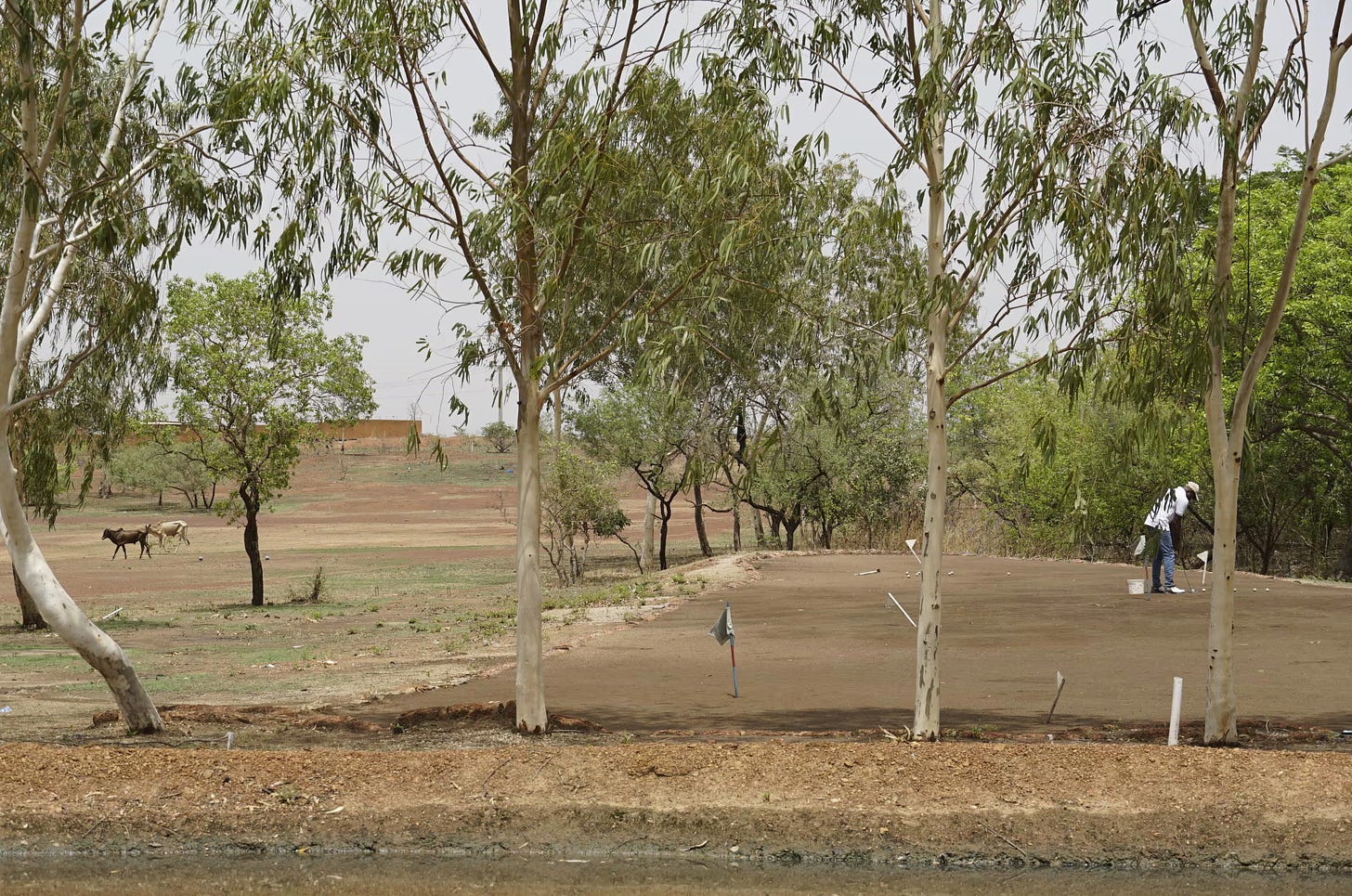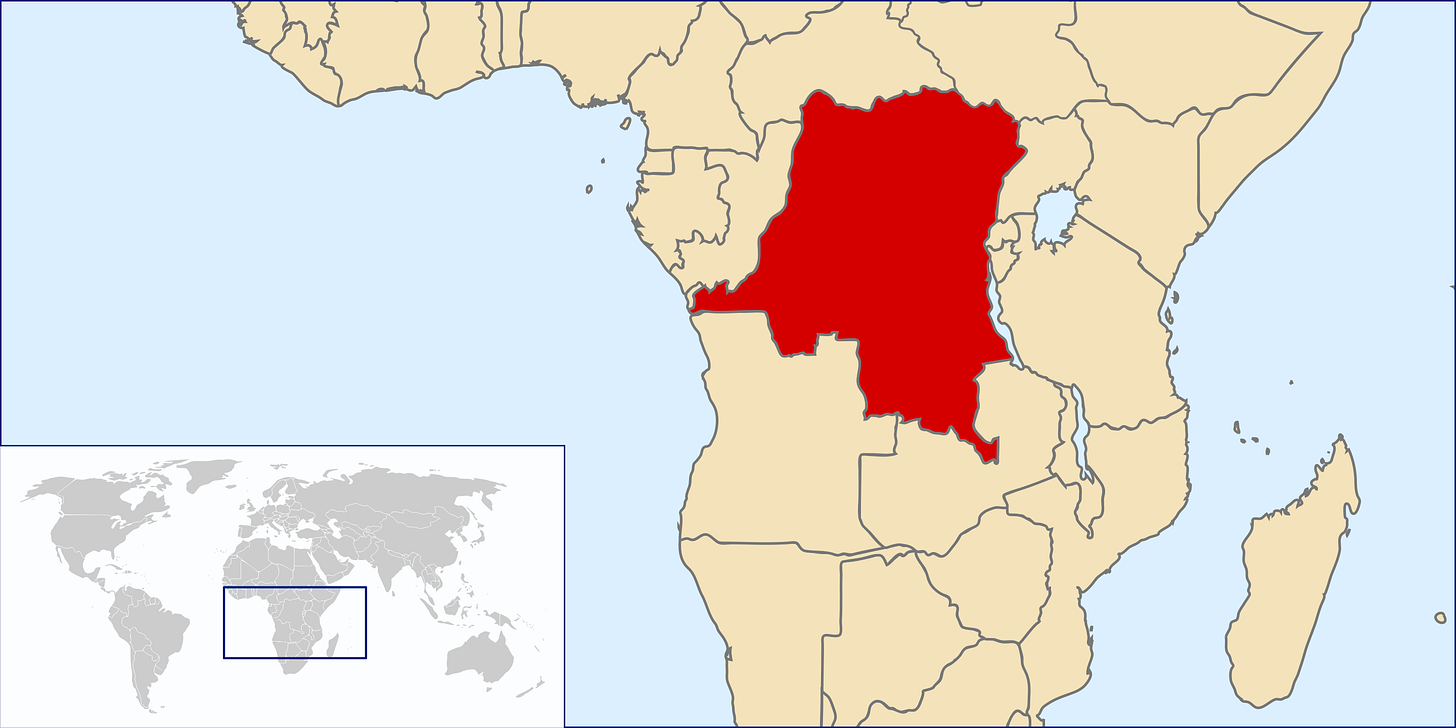🔅 From Unconventional Golf to a Dance Legend's Birthday
Burkina Faso's Brown Greens, Sanctions Controversy, and Germaine Acogny Turns 80
Photo of the Day
Spotlight Stories
Burkina Faso's Unconventional Golf Club Embraces the Brown
In a sport where lush, manicured greens are the norm, one golf club in Burkina Faso is proudly proclaiming:
"Our green is brown!"
Golf Club Naba Gninbolbo, located on the outskirts of Ouagadougou, has taken a unique approach to the sport, eschewing the typical water-guzzling, pesticide-laden fairways in favor of a more sustainable and locally-adapted design.
From Farmland to Fairway: A Tale of Two Visionaries
The story of this unusual golf club begins in 1975, when a village chief and his German friend decided to convert farmland into a nine-hole golf course. Over time, the course expanded to 18 holes, earning the approval of the French golf federation despite its distinct lack of greenery.
At Golf Club Naba Gninbolbo, the maintenance crew consists of cows, sheep, and goats. These animal groundskeepers wander the course freely, taking on the role of grass-eaters during the rainy season.
As Salif Samaké, president of the Burkinabé golf federation, explains, "Burkina is a Sahelian country, water is a scarce commodity, we cannot afford a club with grass. We want to play golf, but in our reality."
The Thirsty Truth About Golf Courses
Golf courses have long been criticized for their excessive water consumption, with a 2013 review revealing that US courses used 1.44% of the country's irrigation water.
They also have a reputation for heavy use of pesticides and herbicides, all in the name of maintaining those pristine greens. Moreover, their land use has come under scrutiny, with some arguing that golf courses have a higher footprint per player than any other sport.
In recent years, the golf industry has made efforts to address its environmental impact, with courses announcing plans to become more eco-friendly. Golf World even publishes an annual "Green 100" list, highlighting the most environmentally-conscious courses in Europe.
And in Burkina Faso, where only 47% of the population has access to clean drinking water close to home, Golf Club Naba Gninbolbo has found its own way to minimize water usage.
The greens are made from a mixture of sand and used motor oil, which prevents the sand from blowing away and makes it more compact. The club embraces the local wildlife, with a small Fula village (an ethnic group known for their nomadic lifestyle and close relationship with cattle) integrated into the golf course.
In a world where sustainability and environmental consciousness are becoming increasingly important, Golf Club Naba Gninbolbo serves as an inspiring example of how sports can adapt to local realities and embrace eco-friendly practices.
Lawmakers Question Biden's Plan to Ease Sanctions on Controversial Mining Mogul

In a rare display of bipartisanship in the US, four congressional lawmakers have come together to voice their concerns over the Biden administration's plan to boost access to essential metals for electric vehicle batteries by easing sanctions on Dan Gertler, an Israeli mining executive accused of corrupt practices in the Democratic Republic of Congo.
Gertler, an Israeli billionaire, has been accused of relying on personal ties to government officials in Congo to secure mining concessions at below-market prices, casting a shadow of corruption over the country's entire mining industry. The Biden administration argues that allowing Gertler to sell his financial stake in three Congolese mines will help attract more Western-leaning investors, who have been hesitant to do business in the region due to the corruption allegations.
However, the bipartisan group of lawmakers, consisting of two senators and two House members, disagrees with this approach. In a letter addressed to Secretary of State Antony J. Blinken and Treasury Secretary Janet L. Yellen, they expressed their fear that if sanctions are removed, Gertler will "profit massively off his ill-gotten assets to the detriment of the Congolese people."
The Human Rights Angle:
The lawmakers have pointed out that Gertler has not paid restitution to Congo for the estimated $1.3 billion in revenue the nation lost out on as a result of the alleged corrupt deals.
The controversy comes at a critical time for the electric vehicle revolution, as cobalt, a key component in longer-range electric vehicle batteries, is becoming increasingly important. Most of the cobalt-producing sites in Congo are Chinese-controlled mines, with the last large American-owned mining company having pulled out of the country in 2020.
As the Biden administration seeks to secure a stable supply of the essential metal, it faces a difficult balancing act between promoting access to critical resources and maintaining its stance against corruption and human rights abuses.
As the world transitions to a greener future, the question remains: at what cost?
Germaine Acogny: The Mother of African Contemporary Dance Turns 80
On May 28th, Africa's most celebrated dancer and choreographer, Germaine Acogny, reaches a milestone birthday. As she turns 80, it's the perfect time to reflect on her incredible journey and the indelible mark she has left on the world of dance.
Born in Benin in 1944 and raised in Senegal, Acogny faced numerous challenges as a young dancer. Feeling alienated in the Catholic school and dance classes she was to join in Paris (where she was the only Black student), Acogny began inventing movements that celebrated her unique body.
"I have taken my flat feet, my big behind and African woman's hips, my tall west African body, and made this the centre."
A Living Legacy:
Acogny's contributions to contemporary dance are immeasurable. She was one of the first African dance makers to openly disrupt the European norm of a white, rail-thin, weightless female dancing body.
Her work often reflects on her own history and the embodied understanding that women's bodies are often the greatest spoils of war, genocide, and patriarchy.
Two of her dance works stand out as particularly powerful. "Fagaala" (Genocide), a collaboration with Japanese dance maker Kota Yamakazi, explores the horrifying memory of the Rwandan genocide. Male dancers were asked to perform the consequences of rape and torture, confronting the horror of men and war.
In "Somewhere at the Beginning," a deeply personal solo created and performed by Acogny at the age of 71, she unearths the devastating effects of colonial Christianity while connecting with the suppressed power of her grandmother's Yoruba spirituality. This unique feminist decolonial storytelling offers the audience the glorious, unprecedented body of an older African matriarch dancing truth to power.
As Germaine Acogny celebrates her 80th birthday, the dance world pays tribute to a living legend who has helped shape Africa's significant contribution to dance by rethinking bodies, histories, and identity itself. Her legacy will continue to inspire generations of dancers to come, reminding us all of the power of art to break barriers and tell stories that need to be heard.
Food for Thought
“Birds sing not because they have answers but because they have songs."







